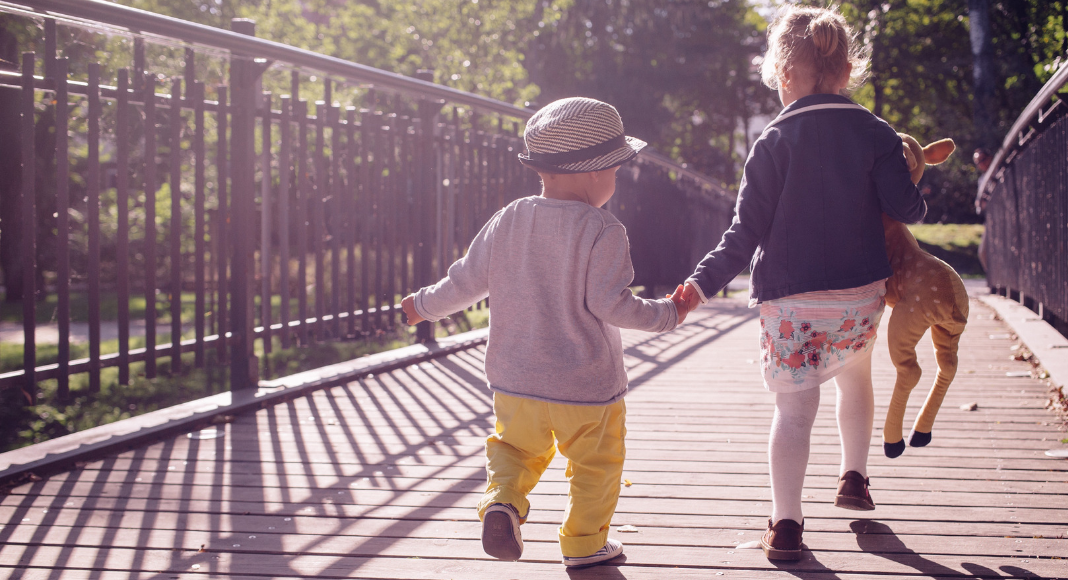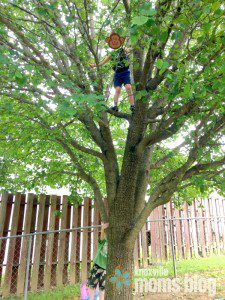Years ago, when my daughter was an infant, someone gave her a onesie that read, “Spoiled Rotten.” Now, the truth is that she did get all the attention and affection any tiny human could ever want. She was our only child at the time, the only grandchild on my side of the family and only granddaughter on my husband’s side. She attended daycare at the church where my husband was pastoring and my best friend was Assistant Director, so she had more than a little bit of privilege there. Pretty much any way you looked at it, you could have called my daughter “spoiled.”

But I didn’t.
Over the years I have passed on many cute outfits for my kids because of the language printed on them: words like “spoiled” and “diva” for my daughter, and phrases like “little monster” and “lady killer” for my boys. It’s not that these monikers are inherently bad, and I pass no judgment on you if you deck your kids out in adorable graphic tees bearing such verbiage. But for me, I have found the way I talk about my kids directly correlates to how I talk to my kids.
Choose Better Adjectives
Peggy O’Mara, author of Natural Family Living, famously said, “The way we talk to our children will become their inner voice.” I read this quote at a time in my life and mothering when I found myself yelling…a lot. I was convicted about the manner and tone with which I spoke to my own kids, and I had to make a decision about handling my own stress that would be best for my family’s long-term emotional health. I didn’t realize the solution for me would be so simple as choosing better adjectives.
One day while venting to my mom, I said something along the lines of, “These kids are crazy!” and her response changed my parenting from that day forward. “You really need to watch what you say about them,” she replied. I brushed it off with an “Aww, mom…” and defense that the big kids were napping and the baby couldn’t understand me. “No, that’s not what I mean,” she contended. “Calling your kids crazy will make you think they’re crazy. They’re not. Come up with some better adjectives.”
To be completely honest, I was defensive at first. Clearly my mom did not remember the trials and stresses of parenting three small children. Give me a break, right?! The more I thought about what she said, though, the more I realized she was right. Over the next few days, I tried to see my children for who they really were, not how inconvenient they were to me. I chose better adjectives.
My strong-willed and opinionated pre-schooler was not sassy or a diva; she is bold, convicted, and passionate about her beliefs.
My wild and dangerous toddler was not a monster; he is courageous, adventurous, living life to the absolute fullest.
My fit-throwing infant was not fussy or intent on driving me bonkers; he feels deeply and would eventually become an incessant talker, determined to communicate all those feelings he couldn’t express without words. (Let’s be real; sometimes infants cry and scream because they’re frustrated they can’t do or say what they want. My great uncle was the same way following a massive stroke that left him bed-bound and unable to speak – chew on that.)
It’s Not You, It’s Me
Changing my language about my children was superficial at first, but over time it changed the way I saw them. Rather than constantly being frustrated by their antics, I saw a long-term vision of the incredible adults they will one day become. Those adults won’t be exactly like me and certainly won’t make my life convenient or easy, but they are beautiful and worthy of my love. Choosing better adjectives doesn’t inherently make them better people, but it makes me a better mom because I see them for the amazing individuals they really are and not the easy, well-behaved minions I want them to be in this moment.
Seeing the gifts and talents behind my children’s frustrating behavior also helps me respond and correct them with love. When my tender-hearted adventurer does something dangerous, coming down on him about his recklessness will crush his spirit. Rather, I sit him down and express my love and concern for his safety, and we discuss alternative methods to experience the adventure he seeks in a more age-and-developmentally-appropriate manner. And, sometimes, I teach him how to do those things safely.

When I am intentional about uplifting my children to myself, it becomes easy to uplift them to others and to my children themselves. When my 7-year-old is down about a mean kid at school, it’s easy for me to encourage her and build her self-esteem with positive, encouraging adjectives. My words have more weight because she knows I believe them, and I can back them up with examples of what makes her so amazing. To be honest, I probably wouldn’t be very good at that had I not been practicing it to myself for years.
When I am in the habit of choosing better adjectives for my kids, I find myself having exponentially greater capacity to love them, even when it’s hard. I have more patience, give more grace, and feel greater pride in who they are. I think all of us moms can benefit from that.
How do your words affect your attitude? Can you tell a difference in your parenting when you are intentional about your words?




















I’m so glad this article found me at the right time in my life. It’s trying times with my two year old and sometimes I find myself challenged by his outgoing and independent ways. I’m making this my new year resolution. Thank you!
Good luck in 2016, Danielle! You can do it!
[…] capable of better. I do not suggest children be coddled or go undisciplined. As parents, though, we must recognize that words matter, and if we want our children to realize their potential, we must speak that truth to […]